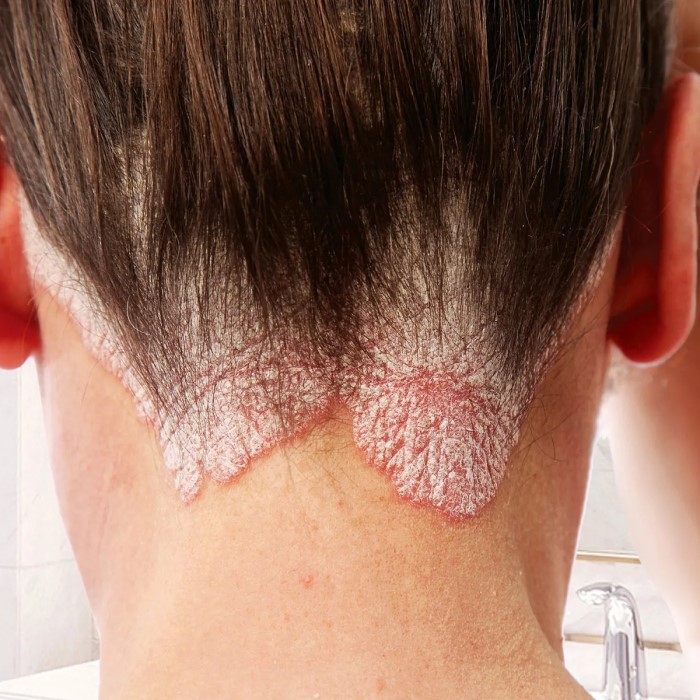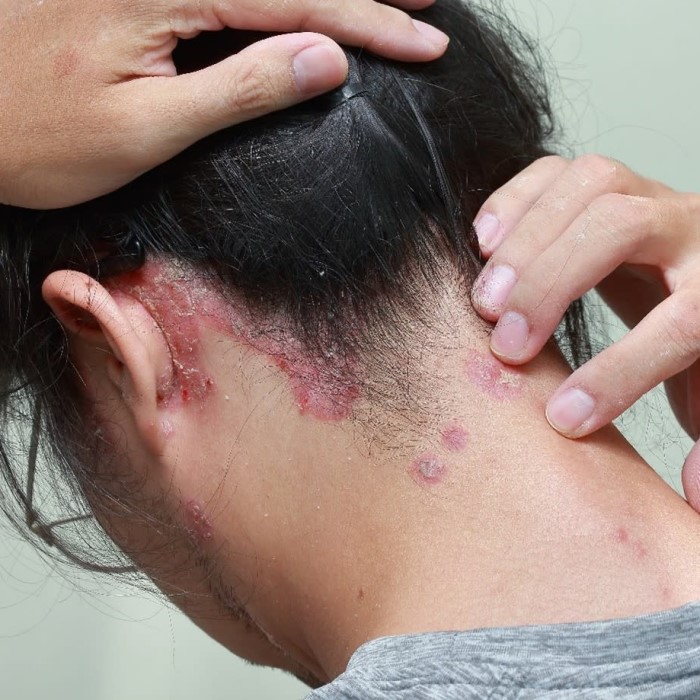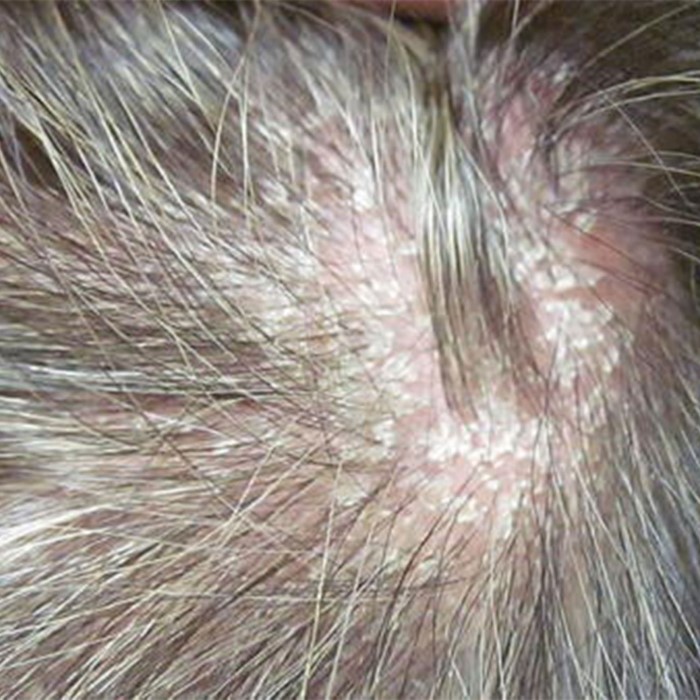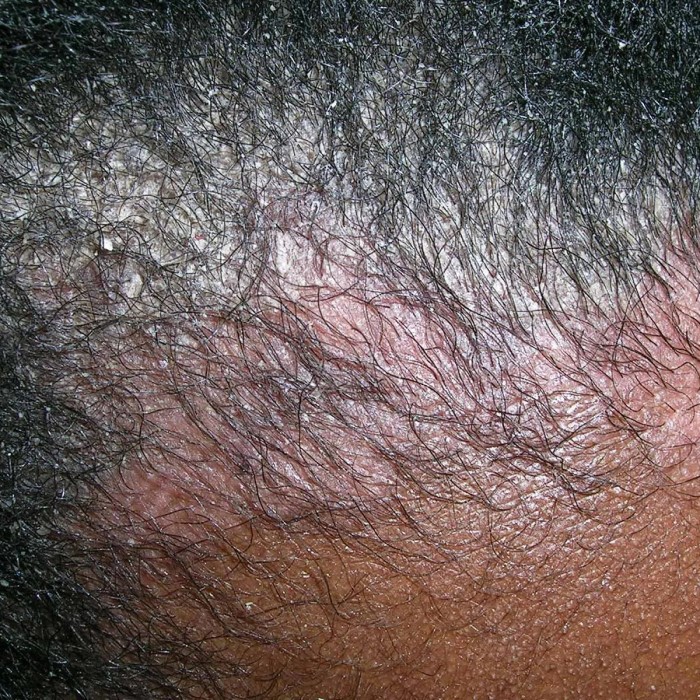
Does Scalp Psoriasis Cause Hair Loss? Expert Tips and Advice
Understanding Scalp Psoriasis and Its Effects
Scalp psoriasis is a common chronic skin condition that affects millions of individuals worldwide. It is characterized by red, inflamed patches covered in silvery scales. The condition can be physically uncomfortable and emotionally distressing, especially when individuals worry about how it might impact their hair. The question that arises is: does scalp psoriasis cause hair loss? To provide clarity, it’s essential first to understand the nature of this skin condition and its effects on hair health.

Scalp psoriasis results from an autoimmune response. In healthy skin, skin cells regenerate in a cycle that typically spans several weeks. However, in psoriasis, this cycle is drastically shortened. Skin cells divide and accumulate rapidly, leading to an overproduction of cells on the scalp. The result can be an uncomfortable buildup that manifests as itching, flaking, and redness. This cycle raises concerns about hair loss, as individuals experiencing these symptoms frequently question the impact on their hair.
What Causes Scalp Psoriasis?
Understanding the causes of scalp psoriasis is crucial in managing the condition effectively. The exact etiology of scalp psoriasis is multi-factorial, involving genetics, environmental triggers, and immune system responses.
- Genetics: Familial history plays a significant role. Individuals with a family history of psoriasis are at a higher likelihood of developing the condition.
- Immune Response: It is primarily considered an autoimmune condition where the body’s immune system mistakenly attacks its skin cells, accelerating turnover.
- Environmental Triggers: Factors that can trigger or exacerbate scalp psoriasis include stress, infections, injuries to the skin, extreme weather conditions, and certain medications.
By understanding these underlying factors, individuals can better manage their condition and possibly prevent flare-ups that might lead to further worries about hair health.
Does Scalp Psoriasis Cause Hair Loss?
Does scalp psoriasis cause hair loss? The connection between scalp psoriasis and hair loss is a concern for many. Various factors influence this relationship.
Temporary Hair Shedding
- Flare-Up Effects: During flare-ups of scalp psoriasis, significant inflammation and irritation occur. These symptoms can disrupt the normal growth cycle of hair follicles.
- Visibility of Hair Loss: As a result of this inflammation, temporary hair shedding may become noticeable. Affected individuals might observe thinning patches or localized hair loss in areas where plaques are present.
- Reversibility: Fortunately, this hair shedding is often reversible. Once the psoriasis condition improves through effective treatment and intervention, the hair follicles can recover, leading to regrowth over time.
Impact of Scratching and Irritation
- Itchy Scalp: People suffering from scalp psoriasis frequently experience discomfort due to itching. To relieve this, many resort to scratching their scalp.
- Consequences of Scratching: While scratching may provide temporary relief, it can lead to hair breakage. The mechanical force of scratching can weaken hair strands, exacerbating the issue of hair loss.
- Long-Term Damage: If inflammation and irritation persist without adequate treatment, the continual trauma from scratching could potentially damage hair follicles. Such damage may result in long-term thinning and even permanent hair loss in severe cases.
Traction Alopecia Risk
- Understanding Traction Alopecia: Although scalp psoriasis does not directly destroy hair follicles, there is a risk of traction alopecia. This condition occurs when hair is subjected to excessive pulling or tension.
- Influence of Hairstyles: Wearing hairstyles that place tension on the hair, such as tight ponytails or braids, can exacerbate the issue. Continuous pressure in inflamed areas may prevent the hair from growing back effectively.
- Recommendations for Hairstyling: To minimize the risk of traction alopecia, individuals should consider looser hairstyles that reduce stress on the scalp. Taking breaks from tight styles can help maintain healthy hair.
Emotion and Stress Factor
- Psychological Impact of Psoriasis: The chronic nature of scalp psoriasis can lead to emotional distress. Many individuals may feel anxious or self-conscious about their condition, which can contribute to stress.
- Direct Connection to Hair Health: Psychological stress has been shown to impact physical health, including hair growth. Stressful life events or ongoing emotional challenges can trigger responses in the body that affect hair health.
- Telogen Effluvium: One specific consequence of stress is telogen effluvium—a type of temporary hair loss caused by changes in the normal cycle of hair development. Common stressors include health issues, emotional trauma, or significant life changes, which can lead to increased hair shedding.
- Managing Stress for Hair Health: Addressing emotional and psychological factors is essential for overall well-being and can positively influence hair health. Techniques such as mindfulness, therapy, and stress management practices can significantly alleviate the burden of stress and its impact on hair loss.
Expert Insights on Managing Scalp Psoriasis
In managing scalp psoriasis, it is essential to seek expert advice from dermatologists. Here are several expert-recommended strategies to mitigate hair loss and enhance scalp health:
1. Effective Treatment Plans
- Consultation: It is crucial to work with a dermatologist specializing in psoriasis. Treatment options can include topical corticosteroids, vitamin D analogues, and phototherapy. These treatments work to reduce inflammation and promote healing.
- Consistent Application: Regularly apply prescribed topical treatments, as they can significantly alleviate symptoms and promote healthier skin.
2. Moisturizing Regularly
- Hydration: Keeping the scalp hydrated is vital. Look for moisturizing shampoos and conditioners specifically formulated for sensitive or psoriatic skin. Avoid products containing sulfates or harsh chemicals.
- Oils and Treatments: Natural oils, such as tea tree oil and jojoba oil, can soothe the scalp and provide moisture. Applying a little oil can help control flaking and irritation.
3. Avoiding Irritation
- Skip the Scratching: Encourage patients to resist the urge to scratch, even if the scalp itches. Consider using cold compresses or soothing treatments to alleviate irritation.
- Gentle Hair Care: Use wide-tooth combs and avoid aggressive towel drying after washing. This ensures that the hair remains intact without unnecessary breakage.
4. Diet and Lifestyle Choices
- Anti-Inflammatory Diet: Incorporate foods rich in omega-3 fatty acids, antioxidants, and whole grains. Items such as fish, leafy greens, nuts, and berries can reduce inflammation and may support overall skin health.
- Stress Management: Engage in relaxation techniques such as yoga, meditation, or deep-breathing exercises to manage stress. With less stress, flare-ups may diminish, benefiting both scalp and hair health.
How to Prevent Hair Loss with Scalp Psoriasis
Preventing hair loss while managing scalp psoriasis requires a holistic approach. Here are several preventative measures to consider:
Be Gentle in Hair Care
- Avoid Vigorous Brushing: When the scalp is inflamed due to psoriasis, it is crucial to be gentle with hair care. Vigorous brushing or combing can aggravate the scalp and worsen irritation.
- Use Detangling Products: Instead of traditional hair care products, opt for detangling sprays or creams that are specially formulated for sensitive scalps. These products are designed to minimize irritation while effectively detangling hair without causing additional stress on the scalp.
- Choose the Right Tools: When removing tangles, select combs or brushes with wide teeth or soft bristles. These gentle tools help prevent pulling and reduce the risk of hair breakage.
- Limit Hair Manipulation: Keep hair manipulation to a minimum when the scalp is inflamed. Open hairs should not be frequently styled or pulled, as this can irritate the scalp further.
Limit Heat and Chemical Exposure
- Reduce Heat Styling: Minimize the use of hair styling tools that apply heat, such as curling irons, straighteners, and blow dryers. Excessive heat can lead to dryness and further irritation of an already sensitive scalp.
- Opt for Air Drying: Whenever possible, allow hair to air dry instead of using heat to dry it quickly. Air drying is a gentler method that reduces the risk of damaging the hair and scalp.
- Avoid Irritating Treatments: Steer clear of hair treatments that are known to irritate sensitive scalps, such as harsh shampoos, relaxers, or hair dyes containing strong chemicals. These products can exacerbate the symptoms of psoriasis and lead to additional discomfort.
- Choose Gentle Formulations: When selecting hair care products, look for those labeled as hypoallergenic, sulfate-free, and specifically designed for sensitive skin. Such formulations are less likely to cause irritation and protect scalp health.
Promote Scalp Checks
- Regular Self-Examinations: Make it a habit to regularly examine your scalp for any new patches, changes, or worsening symptoms. Performing visual checks can help you stay informed about the condition of your scalp.
- Identify Changes Early: Early detection of new patches or changes in existing ones is essential. Recognizing these shifts promptly allows for timely intervention and adjustments in treatment.
- Document Observations: Keeping a journal of any changes noticed in the scalp over time can be beneficial. Documenting the appearance of new patches, changes in flaking or itchiness, and responses to treatments can provide valuable insights for healthcare providers.
- Communication with Healthcare Providers: Share findings from self-examinations with your dermatologist or healthcare provider. Open communication helps in creating effective treatment plans and addressing any emerging concerns.
FAQs about Scalp Psoriasis and Hair Loss
Will Hair Grow Back After Scalp Psoriasis?
Yes, in most cases, hair will regrow after managing scalp psoriasis effectively. Once inflammation decreases and the scalp heals, dormant hair follicles may reactivate, leading to regrowth. The timeline can vary, but many individuals experience improvement within a few months.
How to Prevent Hair Loss with Scalp Psoriasis?
Preventing hair loss includes adhering to prescribed treatments, maintaining regular scalp hygiene, and avoiding irritants. Gentle hair handling and a nutritious diet can also play crucial roles.
What Is the Fastest Way to Cure Psoriasis on the Scalp?
Although there is no definitive “cure,” rapid symptom relief can be achieved through effective topical corticosteroids and light therapy. Consulting a dermatologist for tailored treatment plans leads to optimal results.
How Often Should You Wash Your Hair with Scalp Psoriasis?
The recommended frequency for washing hair may vary from two to three times per week, depending on the severity of the condition. A specialized medicated shampoo may be advised for effective cleansing and symptom management.
Conclusion
In conclusion, the question, does scalp psoriasis cause hair loss, is indeed complex. While scalp psoriasis can lead to temporary hair shedding due to inflammation and irritation, proper management and treatment can help minimize or even reverse this hair loss. By following expert-recommended strategies and maintaining a healthy scalp, individuals can protect their hair and scalp health effectively.
Always consult with a qualified dermatologist to receive tailored advice and treatment. With proactive measures and professional guidance, it is possible to maintain the beauty and health of your hair while managing scalp psoriasis. Take the necessary steps towards a healthier scalp today!




